The interim government’s ban on Bangladesh’s largest political party undermines democracy, empowers extremists, and threatens…
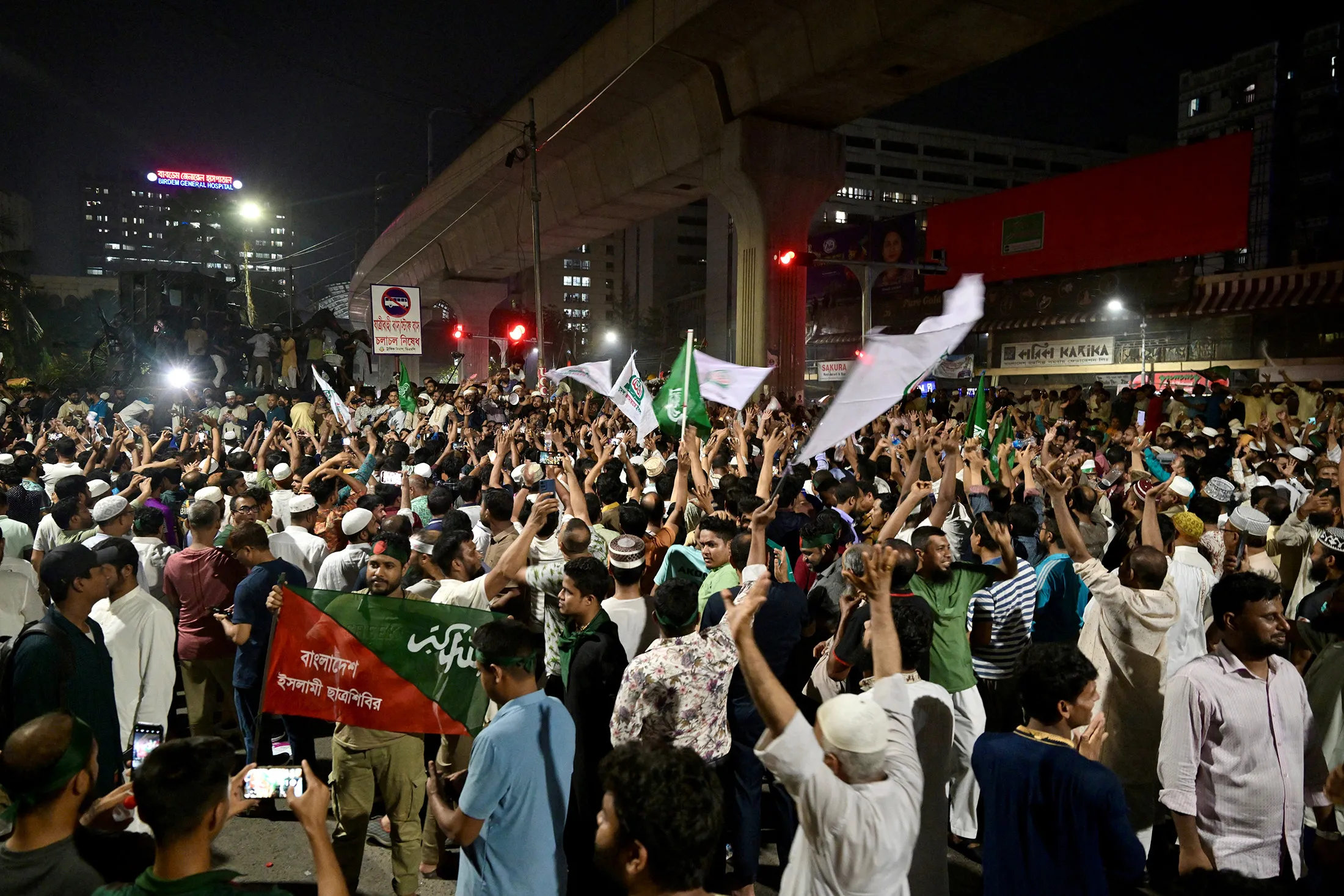
Domestic Conspiracies Behind The Fall Of The Bangladesh Government During The July-August 2024 Movement
Dr. Hufer T
After a year of the fall of the Sheikh Hasina-led Awami League government, now, it is completely evident that several vested quarters of Bangladeshi society were involved in different levels of conspiracies after the general election held in January 2024, along with US deep state involvement.
It is known that all aggrieved groups came under a single covered issue, which is ‘Quota Reform’, in the July 2024 Movement. Be it political parties like BNP-JAMAAT with their old adversaries, be it a section of civil society who are employed in different NGO’s or be it Dr. Yunus, the Chief Advisor of the Current Interim Government, with his legal cases or personal grudge with Sheikh Hasina.
However, a few organizational drawbacks of the Awami League government also led the people of Bangladesh to participate in the July-August 2024 movement. One of the major components was that the Awami League was unsuccessful in establishing an effective link with the Dhaka-based urban middle class and upper middle class.
Though these sections are not directly involved in politics, they have the power to influence others. It is an educated section who are employed in different NGO’s, UN-based organizations, English Medium Schools and Private Universities, etc.
Another failure is a lack of effort in monitoring international media and their activities. Many media persons received foreign funds to run blatant lies against Sheikh Hasina relentlessly for the last 2-3 years. For example, Tasnim Khalil, Devid Bergman, and Kanak Sarwar, who once worked for Bangladeshi media houses, received funding from USAID to run Netra News through YouTube.
As an organization, the Awami League did not try to develop young and dynamic leaders who could connect with the new generation. This major failure, along with the conspiracies of vested quarters, led to the instigation of people against the elected government.
In this write-up, we would like to focus on some key issues that were capitalized on by all groups to dethrone the Awami League from power.
A “meticulously designed” plan indeed.
Reinstatement of the Quota System and the Role of the Attorney General’s Office of the GoB
The spark was ignited as the verdict came in June 2024 from the High Court of Bangladesh about the reinstatement of the Quota System. This quota was abandoned by the Sheikh Hasina government in 2018. But mysteriously, the attorney general’s office of the Government of Bangladesh did not respond appropriately at the very beginning of the hearing.
Notably, the Supreme Court Lawyers of Bangladesh had their representative election only a few months back, before the quota-related judgement came in June 2024. It raises a lot of questions about the implications of such a directive given by the court. The merit of the judgment creates a lot of confusion among government job seekers as it contradicts the government’s previous position.
The High Court, comprising Justice K. M. Kamrul Kader and Justice Khizir Hayat, gave the verdict to reinstate the previous quota system, which sparked ill-motivated conspirators to mobilize students and bring the students for street agitations [1].
Later, the Supreme Court scrapped the previous verdict given by the High Court, but it was too late. Students already took to the streets to prolong the movement, demanding that the government fall [2].
Legal Cases of Dr. Yunus and Deep State Involvement
It is clear from various sources and news that Dr. Muhammad Yunus continuously attempted to overthrow the Sheikh Hasina-led Awami League government to fulfil his own political and business ambitions. As he had to leave his Managing Director (MD) post in the Grameen Bank when he lost the legal battle, his revenge came into being in a great manner that led to the July-August 24 movement under the cover of the Quota Reform Movement.
He was charged with several tax-fudging cases previously, too.
The first verdict of his conviction for tax evasion came in January 2024. At that moment, several other court cases against him related to tax evasion were underway. As a Nobel Laureate and because of his global image as the pioneer of micro-credit, he exploited his reputation and connections to manipulate the local politics of Bangladesh. He attempted the same in 2007-08 during the Fakhruddin Ahmed and Moeen U Ahmed-led government. But failed due to mass protest.
But in 2024, he, along with other vested quarters, grabbed the power of Bangladesh and became Chief Advisor of the country with aid from USAID-funded NGO’s.
Hill Tract and Quota System Grievances
Interestingly, not much clarification is given in the verdict about the reinstatement of 1% quota for tribal, small race and ethnic minority groups in government jobs. The honourable court only mentioned that small ethnic groups are still an economically backwards class, so a reservation is required for them.
But, in the petition, no representatives from the tribal group or small ethnic minority group appeared in court, demanding such quota reinstatement. So, the question arises when such a reinstallation of quotas for ethnic minorities came as a verdict.
A few days later, it became more ambiguous when another verdict came from the Appellate Division of the Bangladesh Supreme Court. In the latter one, directives for all sorts of reservations were given, including the small ethnic group quota, while no one from the small ethnic minority appeared before the court.
Here, we should highlight the fact that unrest has erupted in the Chattogram Hill Tract (CHT) area for the last couple of years. A few militant camps were also found in different parts of Rangamati, Khagrachari and Bandarban with arms and ammunition.
News of deadly clashes between different ethnic groups also appeared in the media regularly, but it remained unnoticed among the urban elites. Discussions regarding it in the public sphere were also absent.
Remarkably, in the 2024 national assembly election, voter turnout remains absolutely zero in many polling centers located in the hilly areas [3].
Many link these clashes and grievances of ethnic minorities to the sudden abundance of their quota for government jobs in 2018.
Tax on Private Universities
Private Universities in Bangladesh were established under the Private University Act 1992. The act was amended in 2010. From its inception, several BNP-JAMAAT-affiliated businessmen were pioneers in establishing private universities. Currently, Bangladesh has around 108 private universities. Many Board of Trustees (BoT) members of these universities have a direct link with BNP-Jamat.
After the Holey Artisan Café attack in 2016, many private universities came under scrutiny. Some measures in terms of monitoring were taken to curb the eruption of Islamic Militancy in these universities. However, after COVID-19 and the economic turmoil due to the Russia-Ukraine war, relaxation emerged in this monitoring process.
On the other hand, private universities, especially their BoT, became direct adversaries when an order came from the Appellate Division of the High Court regarding imposing VAT on these private universities. A long legal battle, which started more than a decade ago, came to an end through such an order.
The way the National Board of Revenue (NBR) has frozen the bank accounts of different reputed private universities, such as North South University (NSU), Independent University of Bangladesh (IUB), etc, particularly before Eid-ul-Fitr of 2024, created huge grievances among the BoT members and private university authorities.
Details of the scuffle between NBR and private universities can be found in this link
https://www.dhakapost.com/economy/281183 [4].
The involvement of BoT members in the July-August 2024 movement is exposed when all the authorities organized a programme to mark one year of the so-called ‘July Revolution’ this year.
Curbing Militancy and Trial of War Criminals
There is no doubt that the Sheikh Hasina-led Awami League government earned huge success in terms of curbing Islamic Militancy in the country. Neighbouring country India hailed her several times for uprooting the insurgency along its eastern border. The seven states of India (known as the Seven Sisters of India) were relatively stable. Separatist groups like ULFA’s activity was very limited during her regime.
The trial of War criminals of 1971 was also another success of her regime. The government executed 11 convicted war criminals to death. Several were given life imprisonment along with other punishments. As the auxiliary forces of the Pakistani Army, most of the convicted war criminals were connected politically with the Jamaat-e-Islami. So, the political rivalry against the Awami League played the key role in last year’s July-August Movement.
No Monitoring in Madrassas and Religious Schools
During the last couple of years, several thousand Madrasas were established in different parts of the country, specifically in the entry points of the capital like Jatrabari, Gabtoli, Uttara, etc. Several Madrasas were also established in the Chittagong Hill Tracts. Most of the Madrassas provide food and daycare facilities if the parents send their children to them.
This facility is considered a blessing as a huge number of female workers are employed in the Ready Made Garments Sector of Bangladesh. These female workers send their children to the madrassas in order to avail of day care facilities as well as religious education. But in the name of religious education, tender kids were given the lesson of radical Islam and commando training to establish footprints in society.
Unfortunately, effective monitoring was completely absent in Madrassas. Reports also emerged regarding the recovery of arms and ammunition from Madrasas located at different parts of the country [5][6]. These students and weapons were used during the July-August movement of last year.
False Image of the Awami League in the Media
Though Sheikh Hasina led-government passed the bill of Right to Information Act in 2011, has given license to several private television channels and newspapers during both her 1996-2001 and 2009-2024 regime, an image was created intentionally by several agencies that she wanted to control the media, that her government does not permit investigative reports, news etc.
The Digital Security Act was introduced during her regime, but it was portrayed negatively. A perception was developed among the commoners that the Awami League government has its own media people; other than that, it does not allow any other media person or newsman.
No Monitoring in the Judiciary System
The judicial system is one of the important pillars of Democracy. Lawyers play a vital role in upholding the rule of law.
Unfortunately, lawyers with a background of BNP-Jamat affiliation are in leading positions in the judiciary. The party affiliation of lawyers played a very crucial role in the July-August conspiracy. Regionalism also prevailed in the legal system, which ultimately demeans the spirit of the constitution of country.
Lack of Monitoring NGO Funds
It is revealed that several development agencies, such as USAID, UKAID, DFID, CIDA, etc, along with the World Bank, ADB, gave direct funds to several NGO’s (Brac, Grameen, CPD, Democracy Watch, etc) of Bangladesh to research social issues. Through such funding, a network has been developed among local Bangladeshi people.
Several academicians of public and private universities were involved in these NGO’s and development agencies as consultants and advisors. These academicians played a crucial role in last year’s July-August movement, especially in shaping public opinion.
As the President of the United States of America shuts down the activities of USAID worldwide, many vocal academicians are now completely silent on the current economic and deteriorating situation of law and order in Bangladesh [7].
Anti-India Propaganda
A vested quarter in Bangladesh ran a smear campaign against India for the last 3-4 years. According to them, the current Modi government of India is looting and colonizing Bangladesh to its maximum extent, which the Sheikh Hasina-led Awami League government completely failed to counter confidently with facts and true information.
The Sheikh Hasina-led Awami League government created a friendly environment for both countries, where both neighbouring countries were enjoying a peaceful environment, ensuring regional security. In her regime, she signed the Land Boundary Act (LBA) with India, sorting out a long-withheld problem of enclaves of the two countries. She signed a helpful trading deal, like “Transshipment,” and imported electricity from Adani Group’s power station, located in Jharkhand.
Without realizing the Global Crisis, the False Allegation of a Price Hike
Since 2020, the world has gone through Pandemic of Covid-19. The economy of the entire world was in peril due to successive lockdowns, purchase of vaccines, etc. The scenario turned for the worse, followed by the Russia-Ukraine war. Several economic sanctions and counter-sanctions were imposed on Russia by the USA and several NATO countries, and vice versa.
Without understanding the global crisis, a vested quarter in the country tried to portray this as the fault of the ruling party, the Awami League.
Apart from the given reasons, several reports related to corruption published in the media went unchecked and without any rebuttal.
Therefore, public perception among the core supporters of the Awami League also got confused and diverted.
Reference:
[1] https://www.dhakatribune.com/bangladesh/court/352095/hc-releases-full-verdict-on-quota-reinstatement
[3] https://bangla.thedailystar.net/news/bangladesh/election/national-election-2024/news-560516
[4] https://www.dhakapost.com/economy/281183
[5] https://www.huffpost.com/entry/bangladesh-madrasa-found_n_178654
The author is an Associate Professor at a University
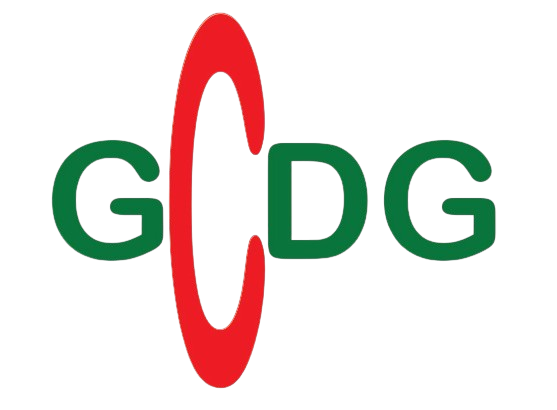
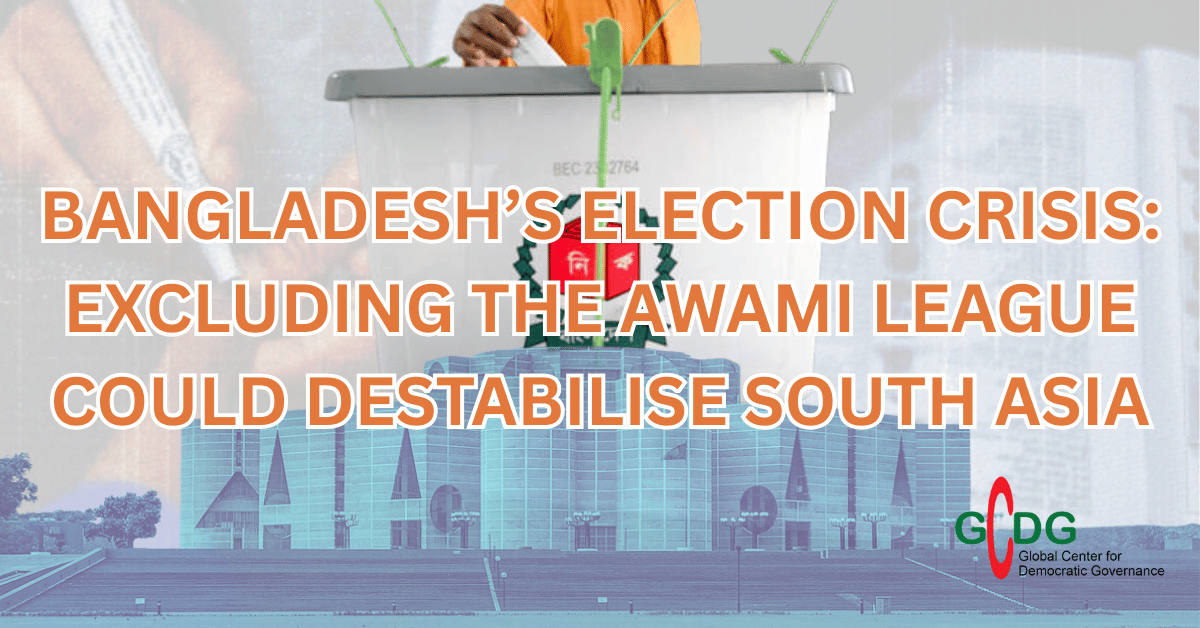
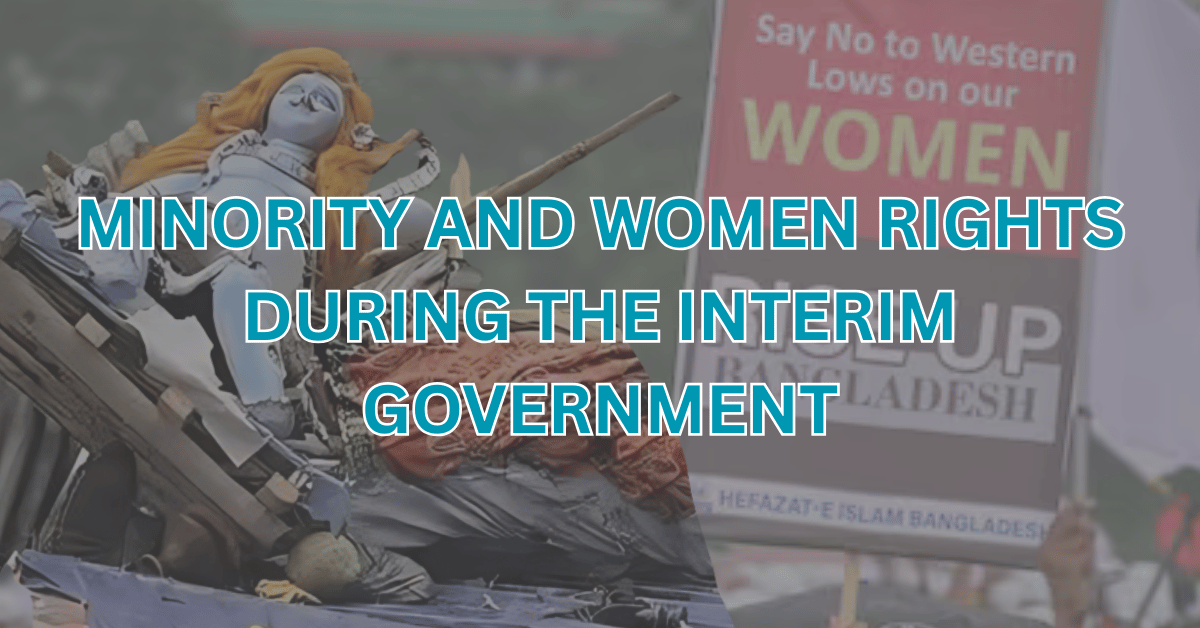
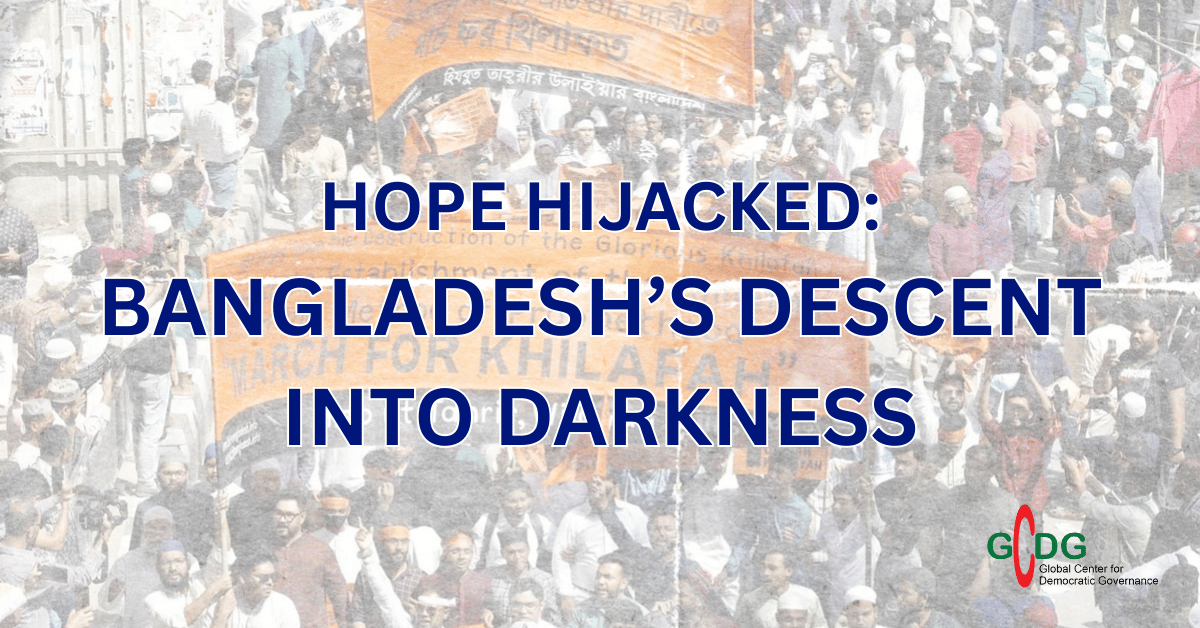
Comments (0)